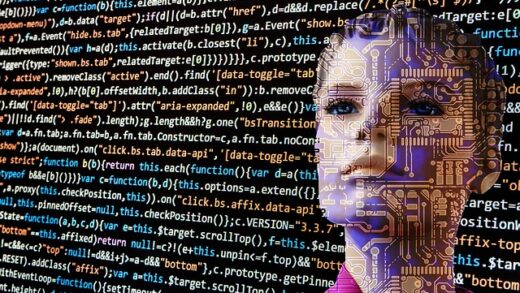Introduction: A World Defined by Technology
Technology has transformed nearly every aspect of our daily lives. From smartphones that double as digital wallets and health monitors to artificial intelligence that curates content, assists in diagnosis, and even writes essays—today’s world is hyper-connected, data-driven, and faster than ever before. But what lies ahead? As we marvel at today’s tech achievements, we stand on the edge of tomorrow’s possibilities: quantum computing, brain-machine interfaces, and sentient AI. Understanding today’s technologies helps us better prepare for—and shape—the future. In this article, we’ll explore current innovations shaping our world and look ahead at the groundbreaking technologies that promise to redefine it.
Today’s Technology: Innovations That Power the Present
The most influential technologies of the present day are not only impressive—they are integral to modern life. Let’s look at some that are shaping economies, societies, and individual lifestyles right now.
1. Artificial Intelligence and Machine Learning
AI is at the heart of countless innovations. From voice assistants like Siri and Alexa to customer service chatbots and self-driving car algorithms, machine learning helps software “learn” from data patterns and improve over time. AI is transforming sectors like healthcare (predictive diagnosis), finance (fraud detection), marketing (personalization), and logistics (route optimization). Generative AI tools like ChatGPT and Midjourney are also changing how we create content, solve problems, and interact with machines.
2. 5G and High-Speed Connectivity
5G networks have started rolling out globally, offering speeds up to 100 times faster than 4G. This boost enables real-time gaming, faster video streaming, and more efficient Internet of Things (IoT) devices. Businesses are leveraging 5G for remote surgeries, autonomous vehicles, and industrial automation.
3. Wearable Technology and Health Monitoring
Smartwatches and fitness bands are no longer just step counters—they monitor heart rate, blood oxygen, sleep cycles, and even detect falls. These wearables sync with apps to provide personalized health insights, giving rise to the concept of “digital health.” Medical-grade wearables and remote patient monitoring are reshaping preventative care.
4. Blockchain and Decentralization
Initially known for powering cryptocurrencies, blockchain technology is now being used for supply chain transparency, secure voting systems, digital contracts, and decentralized finance (DeFi). Its potential lies in creating trustless systems—networks that don’t rely on centralized authority.
5. Sustainable and Green Tech
With climate concerns on the rise, today’s tech also includes innovations designed to reduce environmental impact. Electric vehicles (EVs), solar-powered homes, smart grids, and carbon-capture technologies are becoming mainstream. Innovations like vertical farming and lab-grown meat also address sustainability in agriculture and food production.

Tomorrow’s Technology: Glimpses of a Sci-Fi Future
While today’s innovations are awe-inspiring, tomorrow’s breakthroughs promise to reshape the very boundaries of possibility. Here’s a look at some of the most promising developments on the horizon.
1. Quantum Computing
Traditional computers use bits (0s and 1s), while quantum computers use qubits, which can be both at once thanks to superposition. This means quantum machines can process complex calculations at unprecedented speeds. Quantum computing could revolutionize areas such as cryptography, drug discovery, financial modeling, and weather prediction. Companies like IBM, Google, and startups like IonQ are racing toward practical quantum advantage.
2. Brain-Computer Interfaces (BCIs)
Imagine controlling devices with your mind. BCIs aim to bridge human brains and external devices, allowing for communication without speech or typing. Elon Musk’s Neuralink and other research initiatives envision a future where we can transmit thoughts directly to machines, restore mobility to paralyzed individuals, and even enhance human cognition.
3. Extended Reality (XR): AR, VR, and the Metaverse
Extended Reality combines Augmented Reality (AR), Virtual Reality (VR), and Mixed Reality (MR) to create immersive environments. Today’s applications are largely in gaming and entertainment, but future use cases span virtual workspaces, social platforms, education, and remote surgery. The “metaverse” could evolve into a persistent virtual world with real economies and identities.
4. Autonomous Everything
Self-driving cars are just the beginning. The future includes autonomous drones for delivery, AI-managed logistics, self-operating factories, and robotic surgical assistants. With enhanced sensors and AI, machines will take on tasks traditionally requiring human input—safely, efficiently, and continuously.
5. Synthetic Biology and Genetic Engineering
CRISPR gene-editing technology has already made headlines for its ability to modify DNA. The future holds possibilities like editing out genetic diseases, growing human organs for transplants, and engineering microbes to produce biofuels. Synthetic biology merges biology with engineering, opening doors to programmable life forms.
6. Space Technology and Interplanetary Travel
SpaceX, Blue Origin, and NASA are pushing humanity closer to becoming a multi-planetary species. Reusable rockets, space tourism, and Mars colonization missions are turning once-impossible dreams into strategic goals. Satellites will also continue to impact Earth through improved communication, navigation, and climate observation.
Conclusion: Embracing Innovation with Responsibility
The technology of today is astonishing—but the tech of tomorrow might just blow our minds. As we transition from digital assistants to brain interfaces, and from blockchain to quantum logic, we must remember that innovation brings both opportunity and responsibility. Ethical concerns about AI bias, job automation, privacy, and environmental impact are real and pressing.
Tech is not just about gadgets and software—it’s about how we live, communicate, work, and dream. Whether you’re a developer, entrepreneur, artist, or user, being aware of these advancements helps you navigate and shape a world that is evolving faster than ever.














